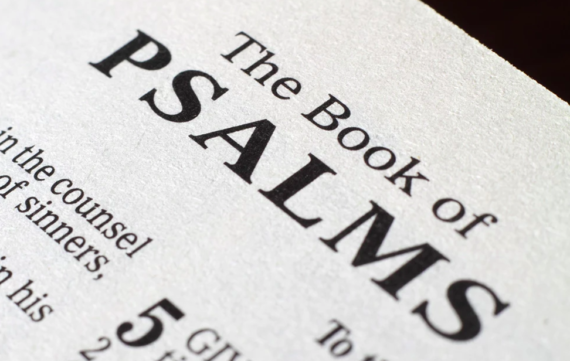Who dishonours God more, the one who does not worship him or the one who worships him wrongly? It is interesting to consider this question — and it does call for serious reflection.
Artur Weiser observes that “The purpose of the psalm is to impress on the minds of the people that their cardinal mistake is, in spite of all their religious zeal, a lack of respect for God” (396).
Peter Craigie comments that “…the language [of the psalm] is comical, for it presupposes a rather weak and hungry God, waiting desperately for the next sacrifice to fill his belly…. To think of sacrifices as something that God literally required was precisely to reduce God to this absurdly hungry deity…” (366).




So, we face a very real danger. It is quite possible for a zealous worshipper to go astray in his approach to worship. He may go far enough astray as to dishonour God. A misguided believer might dishonour God as much as the person who refuses to worship at all.
This psalm, intended as a corrective to such errors in Temple worship, is of value to us as well. The psalm proceeds in a clear manner to its goal.
Acts of God
God is described primarily in active terms, in terms of what he does.
The Mighty One, God the Lord, speaks and summons the earth from the rising of the sun to its setting. 2 Out of Zion, the perfection of beauty, God shines forth. 3 Our God comes; he does not keep silence; before him is a devouring fire, around him a mighty tempest. 4 He calls to the heavens above and to the earth, that he may judge his people: 5 “Gather to me my faithful ones, who made a covenant with me by sacrifice!” 6 The heavens declare his righteousness, for God himself is judge! (1-6)
His beauty, his power, and other attributes are indicated; but the emphasis falls on his right to judge his people. As judge, he ‘summons’ not just a few witnesses but all the earth (1). But finding even that expression is insufficient, the writer indicates that God will call both heaven and earth as witnesses, “that he may judge his people” (4). Most especially he calls the people themselves. It is the ones who have entered covenant relationship with him through sacrifices who must respond (5).
The nature of worship
God speaks of the true nature of the Mosaic worship (7-23). He first describes the true nature of the Mosaic sacrificial system. He tells both what it was not and what it was (7-15).
It is not a matter of feeding God, as if he needed anything.
“Hear, O my people, and I will speak; O Israel, I will testify against you. I am God, your God. 8 Not for your sacrifices do I rebuke you; your burnt offerings are continually before me. 9 I will not accept a bull from your house or goats from your folds. 10 For every beast of the forest is mine, the cattle on a thousand hills. 11 I know all the birds of the hills, and all that moves in the field is mine. 12 “If I were hungry, I would not tell you, for the world and its fullness are mine. 13 Do I eat the flesh of bulls or drink the blood of goats? (7-13)
This concept is taught in the New Testament as well,
“The God who made the world and everything in it, being Lord of heaven and earth, does not live in temples made by man, nor is he served by human hands, as though he needed anything, since he himself gives to all mankind life and breath and everything” (Acts 17:24-25).
Worship is not a time to feed God. He needs no physical food, nor does his ego need our attention. Worship is instead an opportunity to express thanks for what he has done, to express our commitment to him and our dependence upon him.
14 Offer to God a sacrifice of thanksgiving, and perform your vows to the Most High, 15 and call upon me in the day of trouble; I will deliver you, and you shall glorify me.” (14-15).
The psalm then addresses the wicked, those who abuse this system for their own ends (16-22). Four aspects of their guilt are underlined.
- First, they hate discipline, showing that they have no respect for God (17).
- Second, they are pleased to be in company with open sinners (18).
- Third, their speech is deceitful and slanderous (19-20).
- Fourth, and worst of all, they make God in their own image, imagining that he is like them (21), imagining him as a hungry deity that can be bribed with sacrifice.
Finally, he summarizes the relationship of true devotion to him (23).
The foundation of all right thinking about God is the realization that God does not need us. Rather, we need him. We do not deserve entrance into his presence, but he has graciously paid the price for our wrongs, allowing us to approach him.
We must not reduce God to our level. He does not need our worship; yet we need to express our thanks to him. We need to seek his presence.

